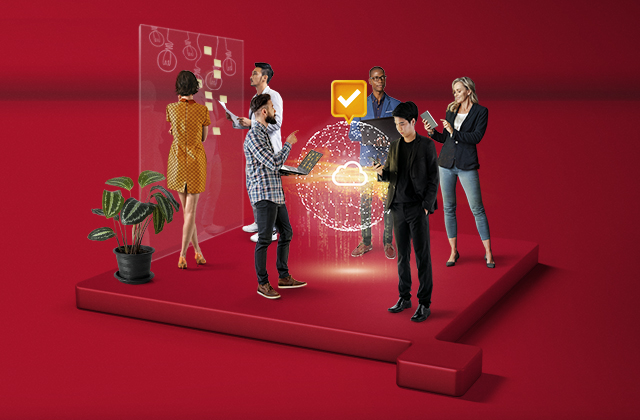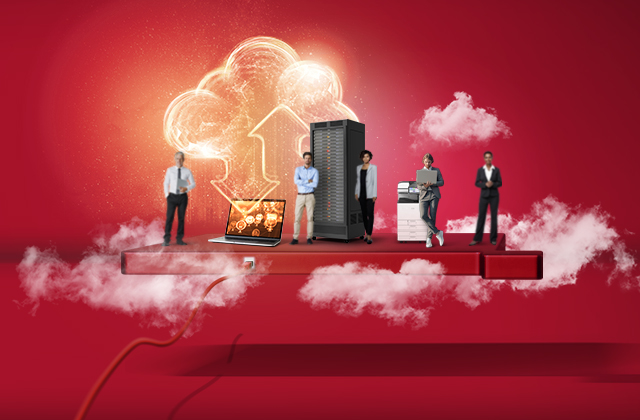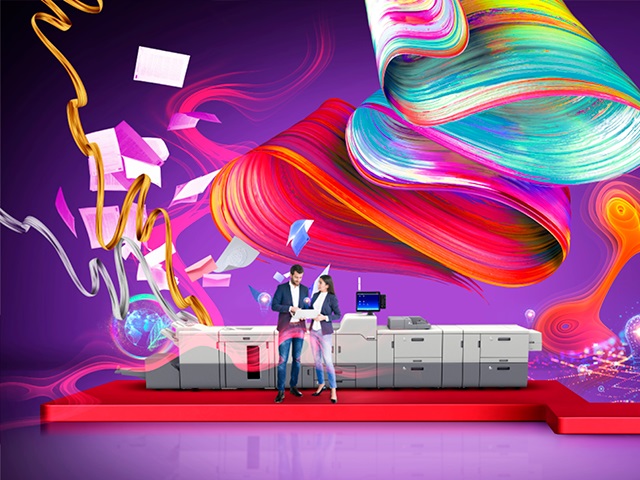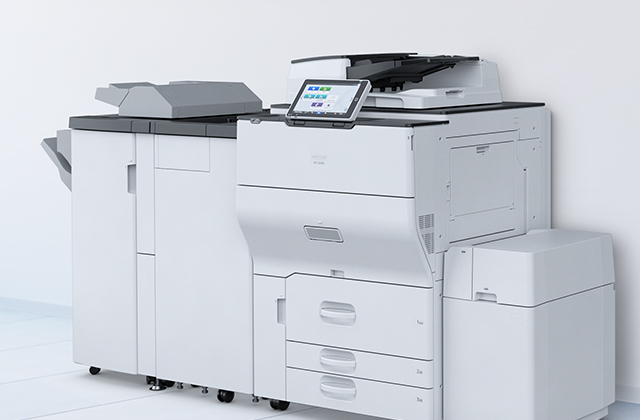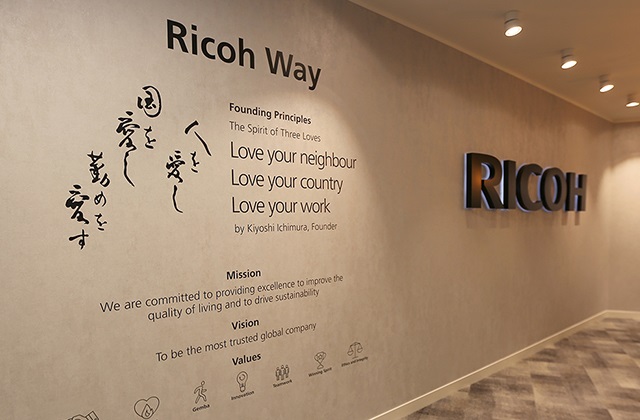“Generation Z is the most challenging, social but insecure group to enter the workplace,” says RICOH Europe
London/Wallisellen, 05 October 2015 – While most businesses are still pre-occupied with integrating and accommodating Millennials in the workplace, new research commissioned by RICOH Europe shows that Generation Z, those currently aged 19 years and younger, are about to pose major challenges for businesses.
Generation Z have higher workplace expectations than older groups yet they will become more quickly frustrated, too. Salary aside, for Gen Zers the main attractions to a company are a work-life balance (48 per cent), working with great people (47 per cent), then flexible working hours, good perks and job security (all 42 per cent). Older generations not only demanded less from employers, their preferences also differed with job security being front-of-mind for Baby Boomers and work-life balance for Gen X and Millennials.
Plus, more than double the number of Gen Zers are attracted to a company that enables them to feel like they’re making a difference to the world – 34 per cent compared with 13 per cent of Baby Boomers, 14 per cent of Gen X and 15 per cent of Millennials. And almost three times as many Gen Z respondents are attracted to companies that offer technology to enable people to work more efficiently (28 per cent) than those from the older generations (10 per cent).
Gen Zers also indicate they will become frustrated far more easily than older generations. Communication is key with 43 per cent saying they would be irritated by a lack of communication from colleagues, compared to 19 per cent from other generations.
And when considering ways of working, 30 per cent would find a “lack of flexibility in hours” a serious frustration with their job – compared with just 13 per cent of Baby Boomers, 17 per cent of Generation X and 20 per cent of Millennials. Meanwhile, a third of Gen Z would be frustrated by a lack of information sharing, and the same number by a lack of innovation.
David Mills, CEO of RICOH Europe, said: “Generation Z has high expectations from their employers – and so they should. Why shouldn’t flexible and remote working truly become the norm? As history dictates, these preferences only grow as the world of work continues to evolve at a rapid rate.
“With Generation Z’s appetite to work collaboratively and remotely, across platforms and borders, adopting new ways of working is a must, not least as a measure to ensure competitive edge and attract the best talent. But having the relevant underpinning processes, the foundations for success, is crucial. From the SMB to the large multi-national, no business can afford to adopt new ways of working without making a genuine commitment to monitoring the strength and relevance of the processes that enable them.”
But despite being demanding, Generation Z are also acutely aware of their workplace weaknesses, and believe they have a lot of skills to learn to be effective at work. In fact, self-critical Generation Z think they have more work to do to develop their skills than any other generation does.
Over half (55 per cent) of Generation Z think they need to improve their face-to-face communication skills while only 41 per cent of Baby Boomers agree that Gen Z needs to develop in this area. Other skills Gen Zers believe they need to develop quickly are communicating with colleagues in a professional manner (48 per cent), resolving conflicts or disagreements (47 per cent) and meeting deadlines (37 per cent). Consistently, older generations rate Generation Z’s skill-set more favourably.
The survey also reveals that Generation Z have high expectations of their own positive impact on the workplace. Most of them believe they will bring new ways of working (65 per cent), exceptional technology skills (63 per cent) and new ideas and fresh thinking (61 per cent).
Mills added: “While the latest group of young workers gets set to help businesses become more agile and digitally-savvy, the environments they are entering are often restrictive. Given their desire for constant innovation, instant communication and open collaboration, Gen Z will be a big challenge for businesses. They certainly know what they want from an employer. But these are rightful expectations, rather than outlandish demands.”
Find out more at http://thoughtleadership.ricoh-europe.com/chen/4G-workplace/.
|Über Ricoh|
Ricoh ist ein führender Anbieter von integrierten Digital-Workspace-Services und -Drucklösungen, die die Digitalisierung des Arbeitsplatzes weiter vorantreiben und dabei helfen, Geschäftsprozesse zu optimieren.
Die Ricoh Gruppe ist weltweit in rund 200 Ländern und Regionen vertreten und greift dabei auf ein breites Spektrum an Wissen, Technologien und Kompetenzen zurück, die das Unternehmen in seiner über 85-jährigen Geschichte aufgebaut hat. Im Geschäftsjahr, das im März 2023 endete, erzielte die Ricoh-Gruppe weltweit einen Umsatz von 2.134 Milliarden Yen (ca. 16,0 Milliarden USD). Der Hauptsitz der Ricoh Gruppe befindet sich in Tokio.
Ricohs Mission und Vision ist es, jedem Einzelnen die Möglichkeit zu geben, sein volles Potenzial und seine Kreativität bei der Arbeit zu entfalten. Im Mittelpunkt stehen dabei das Verständnis und die Transformation der Arbeitswelt, mit dem Ziel, eine nachhaltige Zukunft zu verwirklichen.
Weitere Informationen finden Sie auf: www.ricoh.ch
Für weitere Informationen wenden Sie sich bitte an:
Tamara Martelli
Regional Communications Manager
Deutschland I Österreich I Schweiz
Telefon: +41 (0)44 832 31 89
E-Mail: Tamara.Martelli@ricoh.ch
Webseite : www.ricoh.ch
Folgen Sie uns auf LinkedIn: https://www.linkedin.com/company/ricoh-schweiz-ag
Folgen Sie uns auf Facebook: www.facebook.com/ricohschweiz
Folgen Sie uns auf X: https://x.com/ricohschweiz



